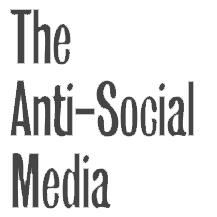I figured since I started #recruitcamp with my speech, I should end it with some of my thoughts about the various sessions and speeches I heard throughout the day. Excuse me if this is a bit longer and a bit more boring than my usual, angrier posts, but how often do we get the chance to look behind the scenes and into the minds of people who want to hire you for your next job?
Like it or not, recruiters are on the social web. They all have Facebook accounts. They all have LinkedIn profiles. Many have Twitter accounts and blogs, and those that don’t are considering having them now. On top of that, really smart people are making new technologies to help connect them to the insane number of job seekers out there.
Recruiters and HR people are looking at social media and technology for several reasons, but it comes down to finding better candidates quicker. Really, that’s all they want from social media. They want to stay ahead of the game and they think social media has the power to do that.
Some #recruitcamp presentations addressed these issues directly. Mike from Jobs2Web spoke on how to build a business case behind using social media to find job candidates. The biggest takeaways from his session for me were:
- Drive candidates to actual jobs and job content, not just your company website.
- Be able to analyze what you set up. Otherwise, you’ll have no idea if it’s working.
These points seem redundant to a social media maverick like myself, but they are essential. If you are using social media in any sense of a business matter, figure out a way to measure it. Otherwise, why do it in the first place?
Tola Oguntoyinbo’s presentation was a bit too general for me. There were many questions and someone asked what social media blogs were good to follow to get general ideas. She asked if Mashable was good, and when Tola recommended it I almost died.
While, I have a known grudge against Mashable, I do believe there are some much better Social Media blogs out there that are just as reactive but take a deeper and more detailed look at issues. One I love is Social Media Today because it features a huge number of authors speaking about the variety of ways Social Media is used. It’s not as hip as Mashable, but it aggregates a lot of really good content. Also, Social Media Examiner posts some amazing articles and videos that break down social media studies and uses that can be applied to a variety of different fields.
Another question from that session that I know went unanswered was if someone had B2B social media campaign examples. I still don’t have any, but I bet you can find a bunch at Social Media B2B.
I loved Laurie Ruettimann’s keynote. It took a very different tone, analyzing the state of the work force and what recruiters and HR professionals should be talking about. Her main point: The system is broken, and social recruiting isn’t going to change a broken system. It was completely different, and absolutely Laurie.
Honestly, I was lost by the sessions immediately after Laurie. But, they did give me a free cookie, and I can’t forget that.
A personal highlight was meeting Jennifer McClure, aka CincyRecruiter. I started following Jennifer on Twitter long ago when I was looking for my very first full time job. She’s wonderfully down to earth, and a master of the nuances and intricacies of personal branding. My favorite quote from her session: “There is no ‘and’ in personal brand. You can only be one thing.” True to this statement, I’ve embraced my role as The Anti-Social Media guy, and will start letting my other roles take the backseat.
Overall, I’m glad I spoke, and I am glad I was given the chance to learn so much. The world is changing faster than ever, and people are using all of the social media tools in more exciting and creative ways.
Anyways, I’ll be back to my normal, curmudgeonly self next week, and I promise I will start taking on more aspects of what Facebook announced at f8 (hint, I don’t like it). Also, if you’ve been waiting for me to say something about LinkedIn, I may finally have something for you to read.






